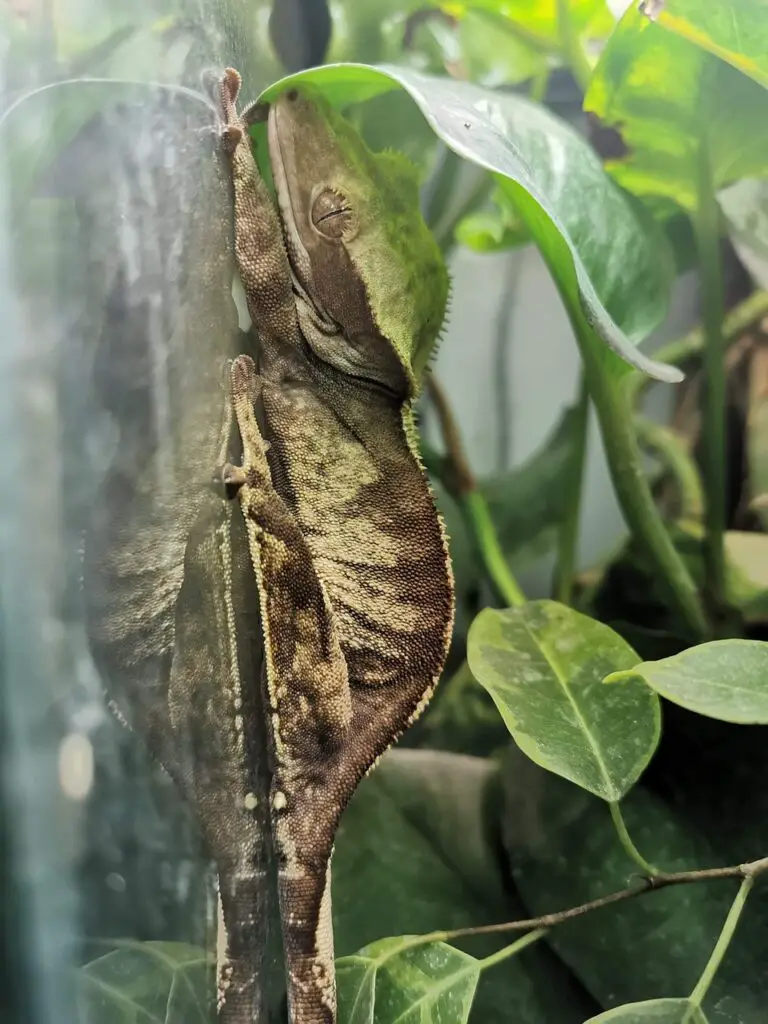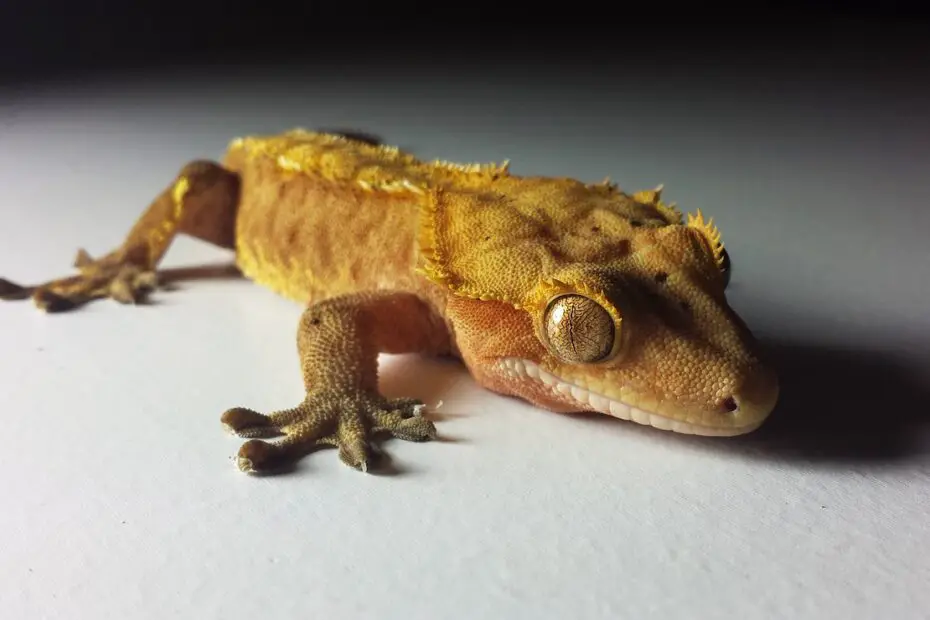Crested geckos (Correlophus ciliatus) are fascinating reptile pets known for their unique appearance and docile nature. As a crested gecko owner, it can be concerning to notice that your pet is not experiencing the expected growth. In this article, we will explore the various factors that can affect the growth of crested geckos and provide insights into why your crested gecko is not growing as expected.
You may also want to know what the ideal crested gecko habitat is.
Understanding Why Your Crested Gecko Is Not Growing
Before diving into the potential reasons for stunted growth, it’s essential to have a basic understanding of how crested geckos grow and develop. Crested geckos, like all living beings, go through different growth stages throughout their lives. The growth rate of your gecko can vary depending on factors such as age, genetics, and overall health.

Age and Growth Rate
The age of your crested gecko is an important factor in determining its growth rate. Young geckos typically experience rapid growth during their early months, while growth slows down as they mature. It is essential to monitor your gecko’s growth at different stages to ensure it is developing as expected.
Environmental Factors
The environment in which your crested gecko lives plays a crucial role in its growth and development. Maintaining a suitable habitat is essential for supporting optimal growth.
Temperature and Humidity
Crested geckos are native to the tropical regions of New Caledonia, and they thrive in a warm and humid environment. Inadequate temperature and humidity levels within the gecko’s enclosure can negatively impact its growth and overall well-being. It is essential to provide a temperature range of 72-78°F (22-26°C) during the day and slightly cooler temperatures at night. Additionally, maintaining humidity levels between 50% to 70% is vital to prevent dehydration and promote healthy growth.
Nutrition and Diet
A well-balanced diet is essential for promoting healthy crested gecko growth. Nutritional deficiencies can lead to stunted growth and various health issues. In the wild, crested geckos primarily feed on fruit, nectar, and insects. As a pet owner, it’s crucial to replicate this diet with commercially available crested gecko food, supplemented with appropriate fruits and insects. Providing a varied diet ensures that your gecko receives all the essential nutrients required for healthy growth.
Health Issues
Underlying health problems can hinder a crested gecko’s growth and development. Some health issues may not be immediately apparent, so it’s essential to observe your gecko for any signs of illness or discomfort. Common health problems that can affect growth include respiratory infections, mouth rot, and skin infections. If you notice any unusual behavior or physical symptoms, consult with a reptile veterinarian for a proper diagnosis and treatment.
Parasitic Infections
Parasitic infections can sap the nutrients from your gecko’s system, affecting its growth and overall health. These internal parasites can cause digestive issues and reduce your gecko’s ability to absorb nutrients from its food. Regular fecal exams by a veterinarian can help identify and treat any parasitic infections.
Calcium and Vitamin Deficiencies
Inadequate calcium and vitamin intake can lead to metabolic bone disease and hinder growth. Crested geckos require calcium for proper bone development and muscle function. A lack of calcium in their diet can lead to weak bones and deformities. Dusting their food with calcium powder and providing a calcium supplement in their enclosure is essential for preventing deficiencies.

Stress and Agitation
Stress can significantly impact your crested gecko’s health and well-being. Environmental changes, handling, and excessive noise can cause stress in geckos, leading to decreased appetite and slow growth. To minimize stress, provide a quiet and calm environment for your gecko, and limit handling to avoid unnecessary agitation.
Enclosure Size and Setup
An insufficient or overcrowded enclosure can impede your gecko’s growth and limit its physical activity. Inadequate space can lead to stress and discomfort, which negatively impacts growth. Ensure that your gecko’s enclosure is appropriately sized for its age and provides ample space for climbing and exploring.
Handling and Interaction
Frequent handling and excessive interaction can cause stress, disrupt your gecko’s eating habits, and hinder growth. While handling can be a fun way to interact with your pet, it’s essential to do so with care and in moderation. Young geckos, especially, should have limited handling to prevent stress and promote healthy growth.
Genetic Factors
Genetics play a role in determining a crested gecko’s growth potential. Each gecko is unique, and some may grow at different rates due to their genetic makeup. Some geckos may reach their full size earlier, while others may continue to grow at a slower pace. Understanding and accepting these genetic differences will help you better appreciate your gecko’s individual growth journey.
Conclusion
Why is your crested gecko is not growing? Crested geckos have unique growth patterns, and various factors can affect their development. By understanding these factors and providing optimal care, you can support your gecko’s growth journey and ensure its well-being.
FAQs
1. My crested gecko is not growing as quickly as I expected. Should I be worried?
It’s natural to be concerned about your gecko’s growth. However, keep in mind that each gecko is unique and may have different growth rates. If your gecko is otherwise healthy and active, there may be no cause for concern. If you are worried, consult with a reptile veterinarian for a thorough health checkup.
2. How can I ensure that my crested gecko receives proper nutrition?
Offering a varied and balanced diet is crucial. Commercially available crested gecko food, supplemented with appropriate fruits and insects, provides the necessary nutrients for healthy growth. Consult with a reptile veterinarian to ensure your gecko’s diet meets its specific needs.
3. Can stress really impact my crested gecko’s growth?
Yes, stress can significantly impact your gecko’s health and growth. Providing a calm and stress-free environment, along with limited handling, can help reduce stress and promote healthy growth.
4. How often should I handle my crested gecko?
Handling should be done with care and in moderation to prevent stress. Avoid handling young geckos too frequently, and always allow your gecko time to rest and acclimate after handling sessions.
5. Are there any genetic factors that can affect my gecko’s growth?
Yes, genetics can influence a gecko’s growth potential. Each gecko is unique, and some may grow at different rates due to their genetic makeup. Accepting these differences and providing appropriate care will help your gecko thrive.
